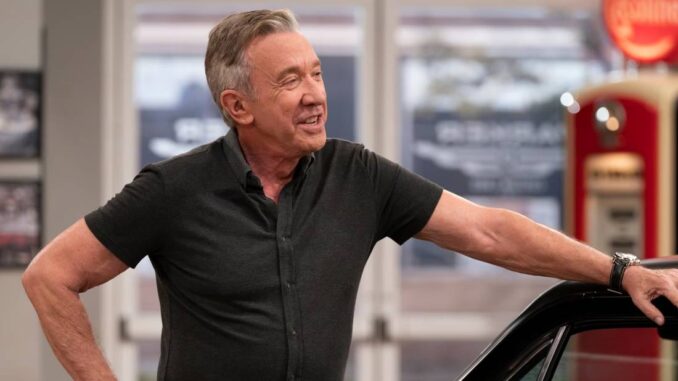
The Echo in the Garage: Tim Allen's Hint and the Unseen Gears of Nostalgia
A single, tantalizing whisper in the vast, noisy engine of Hollywood can sometimes resonate louder than a full-throttle roar. When Tim Allen, the beloved arbiter of grunt-filled wisdom and home improvement, casually dropped a hint about a potential Jonathan Taylor Thomas cameo in his upcoming series, Shifting Gears, it wasn't just a piece of casting news. It was a perfectly pitched chord of nostalgia, a clever piece of marketing, and a testament to the enduring, almost familial, connection forged between actors and audiences over decades of shared screens. It illustrates how the past isn't just remembered; it's meticulously re-engaged, becoming a powerful co-pilot in the journey of new creations.
The immediate, palpable hum of excitement that followed Allen's comment speaks volumes about the original series that cemented their bond: Home Improvement. For millions, Home Improvement was more than just a sitcom; it was a weekly ritual, a bedrock of 90s primetime television. Tim "The Tool Man" Taylor’s grunts, Jill’s pragmatic wisdom, and the evolving dynamics of the three Taylor boys—Brad, Randy, and Mark—became part of the collective cultural fabric. Jonathan Taylor Thomas, as the quick-witted, often sarcastic middle child Randy, was an undeniable teen idol, a face plastered on bedroom walls and the subject of countless schoolyard crushes. His eventual departure from the show, and subsequent retreat from the glaring spotlight of Hollywood, only amplified his mystique. Thus, the very notion of JTT stepping back into Allen's orbit, even in a different narrative, isn't just an actor reuniting with a former co-star; it's a piece of childhood returning, a cherished memory brought to life.
This hint, then, is a masterful play in the art of anticipation. It's not a definitive announcement, but a breadcrumb of possibility, designed to ignite speculation and foster engagement. In an era saturated with content, a familiar face, particularly one as uniquely absent as JTT's, becomes a magnetic north. It generates organic buzz, transforms social media into a digital water cooler, and, most importantly, provides an immediate emotional tether for Shifting Gears to a pre-existing, deeply loyal fanbase. The marketing genius lies in its subtlety: it allows the audience to participate in the "will they, won't they" of the cameo, investing them in the show's potential before a single episode has even aired. It leverages the power of unresolved longing, transforming a simple casting suggestion into a tantalizing narrative of its own.
Furthermore, a cameo of this nature is far more than a simple guest appearance; it’s a symbolic act, an acknowledgement of shared history. Should JTT appear in Shifting Gears, whether as a character with a knowing wink to his past or as a completely new individual, it will serve as an emotional bridge. For those who grew up watching Home Improvement, it’s a nod to their own passage of time, a recognition that the actors have aged alongside them. It allows for a moment of shared, unspoken understanding between creator and audience: "We remember. We know where you came from, and we appreciate you coming along for this new ride." It transforms the viewing experience into a multi-layered one, where the present narrative intertwines with the rich tapestry of the past. The "shifting gears" isn't just about the show's new premise; it's about the gears of time, memory, and enduring connection shifting into place.
Ultimately, Tim Allen's casual mention of Jonathan Taylor Thomas is a profound illustration of how pop culture operates in the modern age. It's a reminder that television is not merely a transient series of episodes but a living, breathing entity that builds emotional equity over decades. The hint doesn't just promise a potential reunion; it promises a feeling, a moment of recognition and comfort in a rapidly changing world. It demonstrates that the most potent marketing often lies not in grand pronouncements, but in the quiet suggestion that the beloved echoes of our past might just be ready to grunt, or perhaps even chuckle, their way back into our lives. The garage doors of nostalgia are opening, and we're all leaning in, waiting for the familiar hum of the engine.